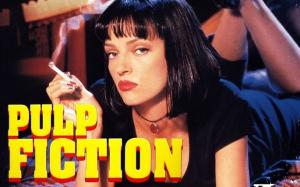17 short stories for children of all ages
Children's stories are ideal for learning values and for the development of imagination, compassion and humor in children. In some circumstances, we need stories that convey a message in a short and effective way. Aware of this, we share a selection of short stories —both classic and contemporary— by different types: prose stories, verse stories and fables with messages for all kinds of situations and ages.
1. The monologue of evil, by Augusto Monterroso
The short story The monologue of evil, by Augusto Monterroso, makes us reflect on how good manages to stay alive, despite the fact that evil seems enormous in our eyes. The tale is in the book The black sheep and other fables.
One day Evil came face to face with Good and was about to swallow it to put an end to that ridiculous dispute once and for all; But when Evil saw him so small, he thought:
This cannot be more than an ambush; Well, if I now swallow the Good, which looks so weak, people will think that I did wrong, and I will shrink so much in shame that the Good will not waste the opportunity and swallow me, with The difference is that then people will think that he did well, because it is difficult to get them out of their mental molds, which is that what Evil does is wrong and what Good does is well".
And thus Good was saved once more.
2. The ignorant mouse, by José Rosas Moreno
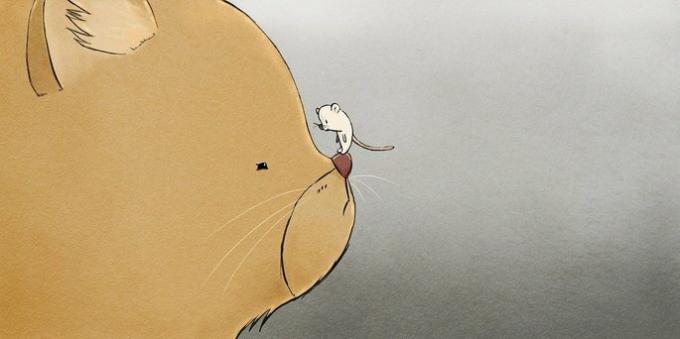
José Rosas Moreno builds a beautiful story in verse about the high price of ignorance and naivety. It is better to train and inform yourself so as not to be deceived, rather than fall for naive and ignorant.
A little mouse,
without malice yet,
waking up from his dream,
he sat in his room one day.In front of the hole
sitting a kitten was
and with a flattering tone
thus he spoke to the mouse:"Come out, dear mouse,
that I want to caress you,
I bring you an exquisite sweet
that I am going to give you."I have very good sugar,
delicious honey and nuts ...
if you go out, full mouth
you can eat a thousand things.The ignorant mouse
it came out of the hole;
and don gato in the instant
devoured my mouse.
3. The Friar Pixie, by Fernán Caballero (Cecilia Böhl de Faber y Larrea)
The Friar Pixie is a short story by Cecilia Böhl de Faber y Larrea, signed under the pseudonym Fernán Caballero. It is a story that warns us about interested people, who only help us when they expect to make a profit.
Once upon a time there were three little sisters who kept kneading a bushel of flour at night. One day they got up early in the morning to do their work, and they found it done, and the loaves ready to put in the oven, and it happened that way for many days. Wanting to find out who it was that was doing them such a favor, they hid one night and saw a very small goblin coming, dressed as a friar, with very old and broken habits. They gratefully made him new ones, which they hung in the kitchen. The goblin came and put them on, and immediately went off saying:
«Little friar with new habits,
nor does he want to knead, nor be a baker ».This proves, my children, that there are many like the pixie, who are complacent and officious until they make a profit, and that once received, they never remember who did it to them.
4. The Young Shepherd and the Wolf, by Aesop
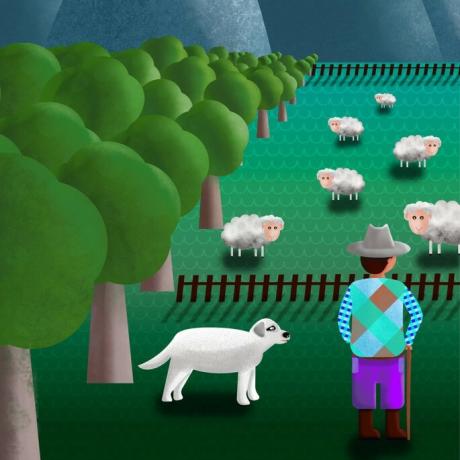
This classic of children's literature, taken from the fables of Aesop, teaches the little ones about the dangers and consequences of the vice of lying. When people lie over and over again, sooner or later they lose their credibility and pay dearly for the consequences.
In a very distant town, there was a young shepherd who was tending a flock of sheep. But this young man had a bad habit: he deceived the townspeople by shouting:
"It's the wolf!" It's the wolf!
People came to help him, only to find that the young man was lying, over and over again.
One day, it happened that the wolf appeared among the sheep, and the young shepherd, desperate, began to shout, this time seriously:
"It's the wolf!" It's the wolf! He is killing the sheep of the flock!
But no one believed him and he received no help. And so the wolf found himself at ease and all the sheep died.
Moral: Nobody believes a liar, even when they tell the truth.
5. The Fox and the Stork, by Jean La Fontaine
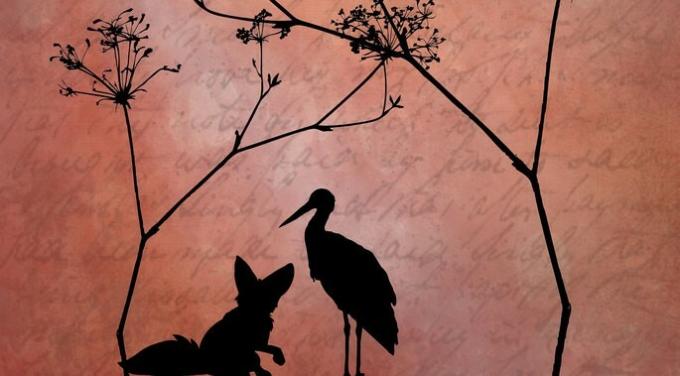
The tale about the fox and the stork, included in the Fables by Jean La Fontaine, teaches the moral standard par excellence, the so-called golden rule: let's not do to others what we don't like them to do to us. In other words, let us treat others with the respect and consideration with which we wish to be treated. We have made an adaptation for everyone.
It happened that one day Mr. Zorro wanted to make them important and invited Mrs. Stork to lunch. The menu was nothing more than a sopicaldo, a soup with few solids to eat, which was served on a flat plate.
As expected, Mrs. Stork could not eat due to the shape and extension of her beak, while Mr. Fox, with his tongue, licked the entire plate at ease.
Offended, Mrs. Stork decided to retaliate for Mr. Zorro's humiliation, and for this, she invited him to eat at her house. Mr. Fox said:
-Congratulations! For friends I always have time.
At the time of the appointment, Mr. Zorro appeared at Mrs. Cigüeña's house, made all the necessary curtsies and sat at the table, where he found the food served.
Mrs. Stork had prepared a tasty stew, served in a bowl with a long neck and a mouth very narrow, where only she could pass her beak, while Mr. Fox could not introduce his snout.
Thus, Mr. Zorro, the same one who pretended to be important, had to return home humiliated, with his ears down, his tail between his legs and, of course, an empty stomach.
Moral: do not do to others what you do not want them to do to you.
6. The Birth of Cabbage, by Rubén Darío

We already know that cabbage is not the most popular food among the little ones, but Rubén Darío tells us helps explain the importance and dignity of cabbage through a richly toned story mythical.
In earthly paradise, on the bright day when the flowers were created, and before Eve was tempted by the serpent, the evil one spirit approached the most beautiful new rose at the moment in which she tended, to the caress of the celestial sun, the red virginity of her lips.
-You are beautiful.
"I am," said the rose.
"Beautiful and happy," the devil continued. You have the color, the grace, and the scent. But…
-But...
"You are not useful." Don't you look at those tall trees full of acorns? These, in addition to being leafy, feed crowds of animated beings that stop under their branches. Rosa, being beautiful is not enough ...
The rose then — tempted as the woman would later be — desired utility, so that there was pallor in her purple.
The good Lord passed after the next dawn.
"Father," said that floral princess, trembling at her perfumed beauty, "do you want to make me useful?"
"Yes, my daughter," answered the Lord, smiling.And then the world saw the first cabbage.
7. The Miser and the Gold, by Aesop

The tale about the miser and gold, collected in Aesop's fables, criticizes those who accumulate riches simply for the sole purpose of possessing them, but they are unable to enjoy or give them any use. Things should be valued for their specific utility, and not simply for their appearance.
A miser who had a lot of riches, he sold them all to buy a single piece of gold with the money. So that it would not be lost and would last forever, the miser buried it next to an ancient wall and every day he was going to make sure he was still there, without noticing that a neighbor always saw him happen.
Curious, the neighbor one day went to that place to discover the mystery. When he saw that it was a treasure, he dug it up and stole the piece of gold.
The next day, the miser found the hole empty, and lamented what he had lost.
But another neighbor saw him, and knowing the reason for his lamentations, he said:
"Be grateful that nothing serious has happened." He takes a stone, bury it in the hole, and pretend that the gold is still there. It does not matter if it is gold or not, because because of your greed, you were never going to take advantage of it.
Moral: Don't accumulate things by accumulating them. These are not valued for their appearance, but for their usefulness and usefulness.
8. The cows that give flavored milk, by Esteban Cabezas
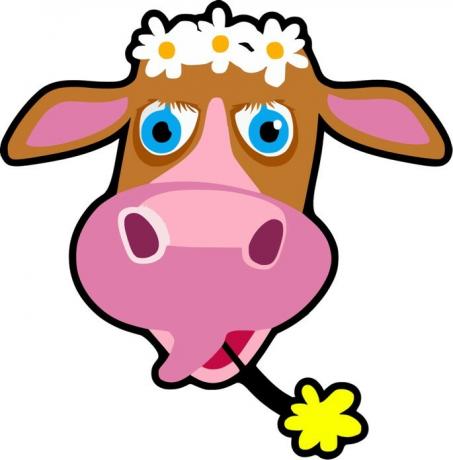
Cows that give flavored milk is a short story by the contemporary writer Esteban Cabezas, and is included in an anthology called A story a day, published by the National Council of Culture and the Arts of Chile. This story makes us laugh with its fine sense of humor, as it is loaded with fresh and funny images that children will love and that will make adults laugh.
You know that song about the cows that give chocolate milk and condensed milk. Well, there are many scientists who have been traumatized since childhood trying to achieve this, until Hans Fritz Sauerkraut came to solve this problem.
"Solve", that was his idea.
Professor Sauerkraut researched the subject for many years, while he stood out for other inventions. He fed a cow only chocolate, but it did not work and the poor thing was super accelerated. He gave another one kilos of sugar, but they only developed cavities. He filled another with delicacy until she became a vegetarian out of sheer hatred of delicacy.
"Could it be something of the mind?" Thought the inventor.
So he painted a strawberry-colored cow, but nothing. Then he painted a yellow one — because of the vanilla, not because of the banana — but neither. He then took a cow into a helicopter, to see if it would later give whipped milk. But not. The poor cow got dizzy and nothing else. The milk came out normal and the poor animal could not stand for two days. It was then that the cows organized to protest, because they were bored with the teacher's abuse. And from that day on they declared a strike and gave pure powdered milk.
9. The sober and the glutton, by Concepción Arenal

Concepción Arenal offers us an interesting rhyming story to explain that true knowledge does not come from choking on information, but from knowing how to nurture thought. To do this, the author offers us a brilliant paradox: a sober man who eats little but is robust, and a glutton who is malnourished.
There was in a place
two very old men,
one of great sobriety
and the other big eater.The best health in the world
always enjoyed the first,
being from January to January
weak and dull the second."Why," the greedy man said one day, "
I eat a lot more
are you much fatter?
I don't understand it, by my faith."It is," the frugal replied.
and keep it very present,
because I digest well,
because you digest badly.Make this app
the smug pedant
Yes, because he has read a lot
he thinks he has education
and provided that judging
the rule for yes take:
It does not nourish what you eat,
but what is digested.
10. El burro canelo, by Gregorio López y Fuentes

Gregorio López y Fuentes tells us the story of a boy who, after going to study in the city, returns to his homeland with the pretense of knowing a lot and having forgotten his origins. Although saddened, his parents find an opportunity to make him reflect.
After a day on the way to find the son who was returning from school after some years of absence, the father had the first upset. As soon as they had greeted each other, the boy instead of asking about his mother, his brothers or at least his grandmother, anxiously told him:
"Father, and the brown donkey?"
"The brown donkey... died of scab, ticks and old age."
The boy had forgotten customs and even the names of the things that surrounded him since he was born. How could he put his right foot in the stirrup to ride! But the father's astonishment was greater when the boy asked with great curiosity if it was wheat or rice as he passed some fields sown with corn.
While the boy rested, the surprised and sad father informed his wife of what had happened. Her mother did not want to give her much credit, but when it was time for dinner, the woman she felt the same disappointment. The boy only spoke of the city. One of his teachers had told him that the jorongo was called "chlamys", and the huarache, the long-suffering huarache of the muleteer, is called "coturno."
The mother had prepared for her beloved son what she liked the most: sweet corn atole, with brown sugar and cinnamon. When he served it, hot and smelly, the son asked the most absurd question of how many he had asked:
"Mother, what is this called?"
And while he waited for the answer, she began to shake the atole with a circular back and forth of the spoon.
"At least if you have forgotten the name, you have not forgotten the meneadillo," said the mother with a sigh.
11. The Mancha cat and the red ball, by Miguel Hernández
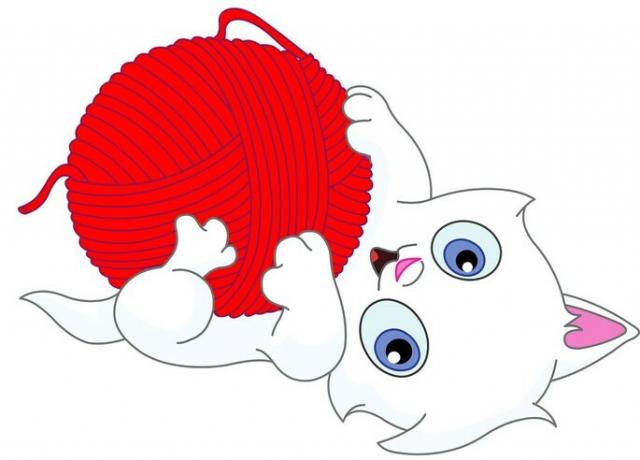
Miguel Hernández is a 20th century Spanish poet. He offers us this funny story, part prose, part verse, in which a naughty kitten finds herself in trouble for playing with things that are not her age.
There was a ball in the sewing box. It was a very big and very red ball. It was a very beautiful ball. The cat Mancha said when she saw him:
My number! My number!
A red ball.
I love her. I love her,
even if I am lame.
I'll get to the sewing box.
The sewing box is very high.
But everything will be a question
to bravely jump
even if it takes a bump.Kitten Mancha jumped. She fell into the sewing kit. The sewing kit, the red ball and the Mancha kitten fell from the table and rolled on the floor.
She said the kitten:
Meow! Meow!
I can not run!
I can not jump!
I can't move a hair!
Who wants to help me?When he heard her, Ruizperillo came. And his mother came. And Ruizperillo's little sister also came. And the whole family of Ruizperillo came to see the Mancha kitten tangled in the ball. Everyone laughed seeing her increasingly tangled in the cotton of the red ball.
Ruizperillo's mother said:
Mancha, Manchita,
you are kidding.
Now you need
my help, kitten, dove.This ball
it is not for a little cat,
but for one who teaches
old sirloin,
old nose and aquiline.Don't you know
embroider or sew,
toothy kitten
and pin nails.Ruizperillo's entire family laughed until the kitten Mancha came out of her cotton jail. Then, Ruizperillo put her rubber ball on the ground for Mancha to play with. And the scared kitten started running scared saying:
Fus! Fus! Parrafús!
Because the bravest cat,
if it is scalded one day,
he runs away from hot water,
but also from the cold.
12. The bunny, by Miguel Hernández
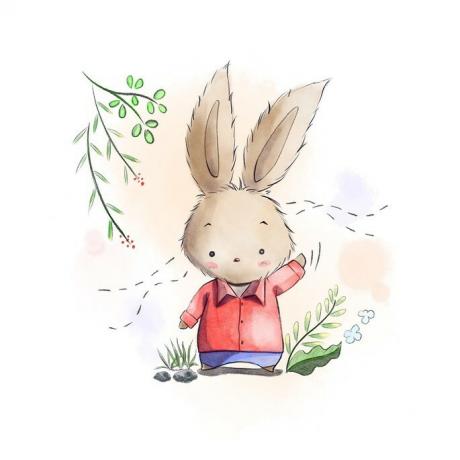
A restless and adventurous bunny gets a great scare for nothing, because of his audacity, and ends up embarrassed in front of his mother, where he runs to take shelter.
It occurred to a bunny to run.
He ran and ran, and he kept running.
He was running so much that he soon found himself in front of a fenced-in orchard.
"This must be a very rich garden because it's fenced off," said the bunny. I want to enter. I see a hole, but I don't know if I will be able to enter through it.
Hop! Hop! Hop!
Yes, the bunny could enter the garden through that hole that he had seen. And once inside, he was happy.
"Here I have a good meal!" What a binge I'm going to get!
The little animal began to eat, and he never tired of eating collards, broad beans, and cabbages.
She ate all day. And so the day came to an end, the bunny said:
"Now I must go home." My mother is waiting for me at home. She had forgotten me while she was eating.
He three times he tried to get out through the little hole and he didn't get it the first, not the second, not the third time.
-Oh my god! the Scream-. I cant go out. This hole is too small. I've been eating all day and now I'm too thick. Oh, I can't get out! Oh my god.
At this, a dog came to the garden and saw the bunny.
-Woof! Woof! Woof! he said-. Today I am joking and I see a rabbit. I'm going to joke with him.
He ran the joking dog right to the bunny.
"A dog is coming," he said frightened. A dog is coming! With how little I like dogs!
I must get out of here. Oh my god!
The bunny ran, and running saw a large hole.
"This way I escape," he said. I don't like dogs. I'm already out of the garden and away from the dog's fangs. Thanks to my eyesight and my legs!
Indeed, when the dog came out of the large hole behind the bunny, he was already in the arms of his mother, in the burrow. And his mother scolded him saying:
"You are a very crazy rabbit." You're going to scare me to death. What have you been doing around all day?
And the bunny, embarrassed, scratched his belly.
13. Fable of the Drowned Wasp, by Achilles Nazoa

The Fable of the Drowned Wasp, written by Aquiles Nazoa, warns its readers about the consequences of bad humor and anger, which cloud understanding and cause disorientation.
The wasp that day
since the morning,
as usual,
very brave he walked.
The day was beautiful
the light breeze;
covered the earth
of flowers was
and a thousand little birds
the airs crossed.But to our wasp
—Our wild wasp—
nothing attracted him,
she didn't see anything
for going as it was
rage food."Goodbye", they said
some white roses,
and she doesn't even
she turned to look at them
for being abstracted,
grim, self-absorbed,
with deaf fury
that devoured her."Good morning," he said
the bee, her sister,
and she that of fury
she almost burst,
for any answer
I have snored
that the poor bee
she left stunned.Blind as it was
the wasp of rage,
suddenly,
as in a trap,
she found herself stuck
Inside a house.
Casting a thousand pests
to be locked up,
instead of putting
serene and calm
to find where
leave the room,
Do you know what she did?She got more angry!
She got on the glasses
to nap,
without seeing in his fury
that a short distance
Windows and doors
they were open;
and as in anger
that dominated her
she hardly saw
where she was flying,
in an onslaught
that she gave out of rage
our wasp fell
in a glass of water.A small glass,
less than a fourth
where even a mosquito
swimming she is saved!
But our wasp,
our wild wasp,
more brave she got
when looking wet,
and instead of taking care,
the very fool,
to win the shore
flapping wings
she began to pest
and throw bites
and to cast spells
and to issue mentions,
and so, little by little,
she was being exhausted
until, furious,
but drenched,
the wasp finished
for drowning.Just like the wasp
What does this fable tell?
the world is full
of brave people,
that instill respect
for his bad face,
that they become famous
because of their rages
and in the end they drown
in a glass of water.
14. To Margarita Debayle, by Rubén Darío

To Margarita Debayle It is a children's poem by the Nicaraguan Rubén Darío. It is compiled in the book The trip to Nicaragua and Intermezzo Tropical (1909). It was dedicated to the girl of the Debayle family, in whose summer house the poet spent a season. The poem tells the story of a little princess who wanted to make a star pin.
Margarita is beautiful the sea,
and the wind,
it has a subtle essence of orange blossom;
I feel
in her soul a lark will sing;
your accent:
Margarita, I'm going to tell you
a story:
This was a king who had
a palace of diamonds,
a shop made by day
and a herd of elephants,
a malachite kiosk,
a large tissue blanket,
and a gentle little princess,
so pretty,
Daisy flower,
as cute as you.
One afternoon, the princess
saw a star appear;
the princess was naughty
and he wanted to go get her.
I wanted her to make her
decorate a pin,
with a verse and a pearl
and a feather and a flower.
The gorgeous princesses
they look a lot like you:
they cut lilies, they cut roses,
they cut stars. They are like that.
Well, the beautiful girl left,
under the sky and over the sea,
to cut the white star
That made her sigh
And she kept going up
by the moon and beyond;
but the bad thing is that she went
without dad's permission.
When she was back
of the Lord's parks,
she looked all wrapped up
In a sweet glow
And the king said, 'What have you done to yourself?
I have looked for you and I did not find you;
and what do you have on your chest
How lit do you see? ».
The princess was not lying.
And so he told the truth:
«I went to cut my star
to the blue vastness ».
And the king cries out: «Have I not told you
that blue should not be cut?
What madness! What a whim ...
The Lord is going to be angry.
And she says, 'There was no attempt;
I left I don't know why.
By the waves by the wind
I went to the star and cut it.
And the dad says angrily:
«You must have a punishment:
she goes back to heaven and stole it
you are now going to return ».
The princess is saddened
for her sweet flower of light,
when then she appears
smiling the Good Jesus.
And so she says: «In my countryside
that rose I offered him;
they are my girls flowers
that when they dream they think of me ».
Dress the king shiny bubbles,
and then she parades
four hundred elephants
on the seashore.
The little princess is beautiful
she because she already has the pin
in what they shine, with the star,
verse, pearl, feather and flower.
Margarita, the sea is beautiful,
and the wind
she wears a subtle scent of orange blossom:
your breath.
Since you are going to be far from me,
save, girl, a gentle thought
to which one day he wanted to tell you
a story.
15. The conceited little mouse, by Achilles Nazoa

The smug little mouse is a tale in verse by the Venezuelan Aquiles Nazoa, who teaches about the values of humility and simplicity in all circumstances. It is up to the protagonist to learn to value the simplest and smallest, because they are the most important.
Many years ago,
two hundred years maybe
for escaping from cats
and the traps too,
some good mice
they sneaked on a train
and to the fields they marched
never to return.Walking, walking and walking
they finally reached the foot
of a mountain called
the mountain I-I-don't-know,
and then the greatest said:
what we should do
is to open a cave here
and stay for once
because there are no cats here
here we will live well.Works that works for you
after gnawing and gnawing
drilling the caves
more than a month has passed
until a beautiful cave
they finally managed to do
with kiosks, garden and stands
as if it were a chalet.There were among the mice
that they were born there later
one more beautiful time
than the rose and the carnation.
His name was not mouse
as perhaps you will suppose,
they called her Hortensia
that she is a woman's name.And she was so pretty, so pretty
that she seemed rather
a painted violet
by a Japanese boy:
it seemed made of silver
by the color of her skin
and her tail a strand
of wool for knitting.But she was very proud
and so it happened that once
she was approached by a little mouse
that he also lived there
and that rising on two legs
shaking like paper
she asked the mouse
for her to marry him.What a smooth mouse!
she said haughtily.
Go marry a
that she is on the same level as her,
for I aspire for boyfriend,
here where you see me,
to a character that is
more important than you.And going out to the meadow
she spoke to the Sun shouting:
- Jeeey! what is so important to you
because of the world he is the king,
come marry me
Well, I am worthy of being
a character's wife
of the importance of you.- More important is the cloud -
said the Sun with simplicity-
Well, it covers me in the summer
and in the winter too.And he answered the ratica:
- Well, what are we going to do ...
If it's better than you
the cloud with her I will marry
More the cloud when listening to it,
she spoke and said to him in turn:
- More important is the wind
that blowing makes me run.- Then - said the rat-
then I know what to do
if the wind is more important
I'm going to marry him.But the hoarse voice of the wind
was heard shortly after
telling the mouse:
- Ay Hortensia, you know?
better than me is the mountain
the one that is seen there-
because it stops my step
the same as a wall.- If the mountain is better
I will marry her-
answered the little mouse,
and to the mountain he went.But the mountain said to him:
- Me important? Hahaha!
Better are mice
those who live at my feet,
those who between my rocks
after gnawing and gnawing,
they built the cave,
where did you come from?Then the little mouse
she came back to her house again
and ashamed and crying
she looked for the little mouse
who will one day despise
for being so small he.- Aaaaaaaaaalfreditooooooooooooo !!!;
Oh, forgive me, Alfredito
- She moaned falling at her feet-,
for small and humble
one day I despised you,
but now I have understood
-and I have understood it well-
that in the world the little ones
they are important too.
16. The dark colt, by Miguel Hernández
The dark foal is a bedtime story by Miguel Hernández. It tells the story of a horse, two children, a white dog, a black kitten and a gray squirrel who set out on the journey to the Great City of Dreams.
Once there was a dark colt. His name was Dark-Colt.
He always took boys and girls to the Great Dream City.
He wore them every night. All the boys and girls wanted to ride on the Dark-Foal.
One night she found a boy. The boy said:
Take me horse
small,
to the big city
of the dream!"Mount!" Said the Dark-Foal.
He mounted the boy and they were galloping, galloping, galloping.
They soon found a girl on the road.
The girl said:
Take me, little horse,
to the great city of dreams!"Ride by my side!" Said the boy.
The girl mounted and they were galloping, galloping, galloping.
They soon found a white dog on the road.
The white dog said:
Guado, guado, guado!
To the great city of dreams
I want to go riding!"Mount!" The children said.
The white dog mounted and they were galloping, galloping, galloping.
They soon found a black kitten on the road.
The black kitten said:Mummed, mummed,
miaumido!
To the great city of dreams
I want to go now
has darkened!"Mount!" Said the children and the white dog.
He rode the black kitten and they were galloping, galloping, galloping.
They soon found a gray squirrel on the road.
The gray squirrel said:
Take me you,
please,
to the great city of dreams,
where there is no pain
no pain!"Mount!" Said the children, the white dog and the black kitten.
The gray squirrel rode and they were galloping, galloping, galloping.
Galloping and galloping, they made leagues and leagues of road.
They were all very happy. They all sang, and sang, and sang.
The boy said:
"Hurry, hurry, Dark-Foal!" Go faster! "But the Dark-Foal was going slowly." The Dark-Foal went slowly, slowly, slowly.
He had reached the great city of dreams.
The children, the white dog, the black kitten, and the gray squirrel were asleep. They were all asleep when the Dark-Foal arrived in the Great City of Sleep.
17. Toys, by Juan José Morosoli
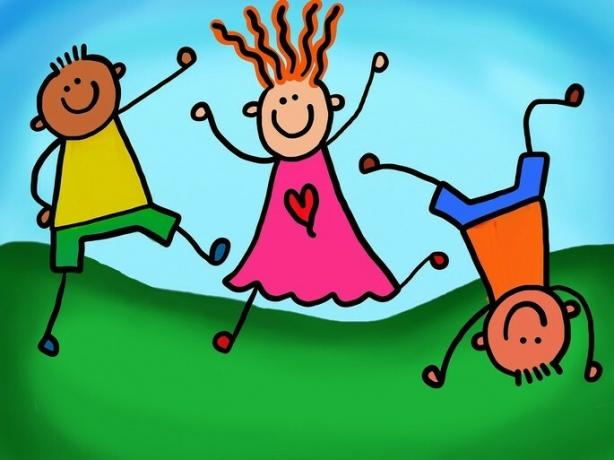
This beautiful story by Uruguayan Juan José Morosoli reminds us that true fun is not in the merchandise of a toy store. When you are cheerful and willing, you find the opportunity to play in everything around you. This story was first published in the book edition Perico, 15 stories for children, in 1945.
When my mother was seriously ill, we left our home. My grandmother took my younger brothers and I went to the house that was the most luxurious in town. My banking partner lived there.
I did not like the house since I came to it.
My partner's mother was a lady who was always recommending silence. The servants were serious and sad. They spoke as if in secret and glided over the huge pieces like shadows. The rugs muffled the noises, and the walls bore portraits of grave men, faces pressed together by long sideburns.
The children played quietly in the toy room. Outside of that room you couldn't play. It was forbidden. The toys were lined up each in its place, like the jars in the drugstores.
It seemed that no one had played with those toys. Until then I had always played with stones, with dirt, with dogs and with children. But never with toys like those. Since I couldn't live there, my godfather Don Bernardo took me to his house.
In my godfather's there were cows, mules, horses, chickens, a bread oven and a shed to store corn and alfalfa. The kitchen was as big as a ship. In the center he had a firewood arena buried in the ground. Near the fireplace a cart tire gathered kettles, grills, and men. Birds and chickens came and went.
My godfather got up at five in the morning, and began to split the wood. His blows with the ax echoed through the house. A cuddly cow would come up to the door and moo as soon as I saw it. Then a concert of blows, bleating, screaming, cackling and flapping of the wings, shook the house. Sometimes when entering the rooms, the frightened flight of a bird that was surprised would stop us undecided. It was a lively and fast-paced house.
The frothy milk and the homemade bread, soft and golden, brought us all to the table like an altar.
Our mornings were spent in the smelly alfalfa barn. From some high holes, pierced by the sun, strips of light fell to the ground where the dust danced.
Mousetraps went in and out everywhere, because there were so many there.
At my godfather's house I learned that the toys and games that make children happy are not in the toy stores.
It may interest you:
- Short captions for kids
- Short legends of Mexico
- Aesop's Fables

